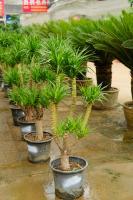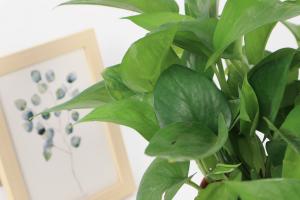Introduction
A plant water meter is an instrument used to measure the amount of water that a plant receives. It is commonly used by gardeners, farmers, and researchers to monitor the water needs of plants. This article will explore how plant water meters work and their benefits.
Traditional Methods of Monitoring Plant Water Needs
Traditionally, gardeners and farmers would rely on visual cues to determine whether or not a plant was thirsty. Common signs of dehydration include wilting leaves, discolored foliage, and dry soil. However, these methods of monitoring plant water needs can be unreliable and may result in over or under watering.
How Do Plant Water Meters Work?
Plant water meters work by measuring the amount of moisture in the soil surrounding a plant's roots. Most plant water meters consist of a probe or sensor that is inserted into the soil. The sensor then provides a reading of the moisture level in the soil, which can be used to determine if the plant needs water.
Some plant water meters are connected to an app or display, which allows users to monitor their plants' water needs remotely. These high-tech plant water meters often come with additional features such as real-time data monitoring, customized alerts, and support for multiple sensors.
The Benefits of Using Plant Water Meters
Using plant water meters can offer several benefits to gardeners, farmers, and researchers. For one, plant water meters provide an accurate measurement of a plant's water needs, which can result in more efficient water usage. This is particularly important in areas where water resources are limited or where water conservation is a priority.
Plant water meters can also help prevent over and under watering, both of which can be detrimental to a plant's health. Over watering can lead to root rot, while under watering can cause stunted growth and even death. By using a plant water meter, gardeners and farmers can ensure that their plants are receiving the right amount of water at the right time.
Conclusion
In conclusion, plant water meters are valuable tools for anyone interested in monitoring their plants' water needs. They provide an accurate measurement of soil moisture, which can result in more efficient water usage and healthier plants. Whether you are a home gardener, a farmer, or a researcher, a plant water meter can help you achieve optimal plant growth and save you time and money in the long run.

 how many times do yo...
how many times do yo... how many planted tre...
how many planted tre... how many pine trees ...
how many pine trees ... how many pecan trees...
how many pecan trees... how many plants comp...
how many plants comp... how many plants can ...
how many plants can ... how many plants and ...
how many plants and ... how many pepper plan...
how many pepper plan...






























